The attempt to outlaw Israeli human rights organizations means the Jewish state may soon be forced to shed its image of a liberal democratic state. Are Israelis ready for that?
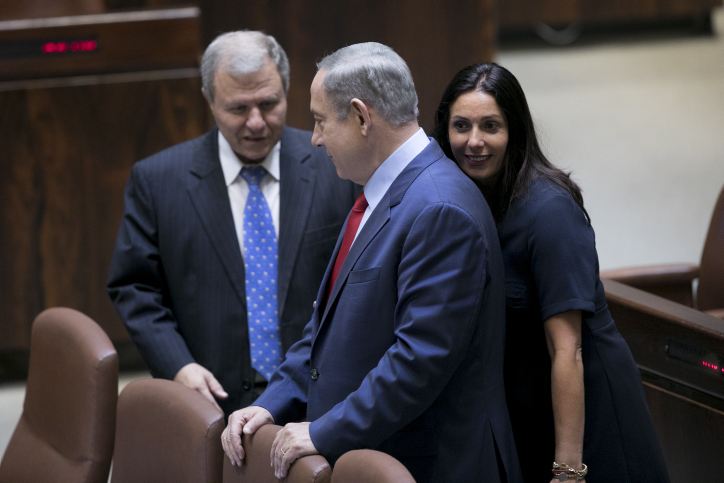
The war of attrition against Israel’s human rights community took a dark turn last week. Hardly anyone noticed.
According to reports, Minister of Tourism Yariv Levin is currently working on a new bill that would outlaw Israeli anti-occupation NGO Breaking the Silence, along with any other organization that harms IDF soldiers or promotes boycotts of the Jewish state. The bill reportedly has the full backing of Prime Minister Netanyahu, who will review it for approval ahead of voting.
Breaking the Silence, an organization made up of former Israeli soldiers that collects and publishes testimonies of IDF transgressions in the occupied territories, called the bill an attempt by Netanyahu to distract the public from numerous corruption investigations that threaten to topple his rule.
The claim isn’t unfounded: Netanyahu’s cronies in the Likud Party are carrying out a parliamentary scorched earth campaign to shield the prime minister from accountability, including establishing a parliamentary committee to investigate foreign government funding of left-wing NGOs. Levin’s bill, then, does away with etiquette. No longer will the Israeli Right harp on the issue of funding alone. In its war of attrition, the goal has become the total elimination of dissent.
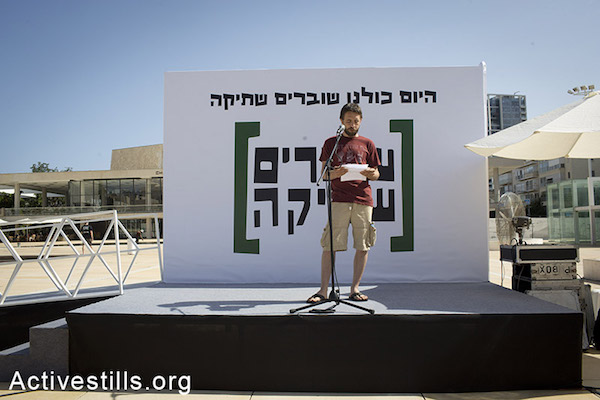
This war has been years in the making — it is, after all, a project of patience. The collapse of the Oslo process and the consequent foundering of the peace camp gave rise to a galvanized brand of right wing, one that sought to carefully undo the work of its predecessors in the Zionist Left. Doing so required a number of carefully crafted steps: supplanting peace negotiations with endless settlement building; creating physical and psychological distance between Israelis and the reality in the West Bank and Gaza; marking Palestinian citizens of Israel, long suspected as fifth columnists by the Israeli establishment, as enemies of the state; and silencing political dissidents through draconian legal warfare, and often the threat of real violence.
A bygone era
Breaking the Silence, from its onset, aimed straight for the heart of the Israeli consensus. Long before its members toured American campuses and spoke to the United Nations, the organization was simply a way for members to hold a frank conversation about the things they did and saw as soldiers of occupation. There was nothing especially revelatory about the group; public discussion about the goings on in the occupied territories was not uncommon in the early 1990s, as the First Intifada awakened a significant part of the Israeli public to the deleterious nature of holding a civilian population hostage while plundering its land and labor.
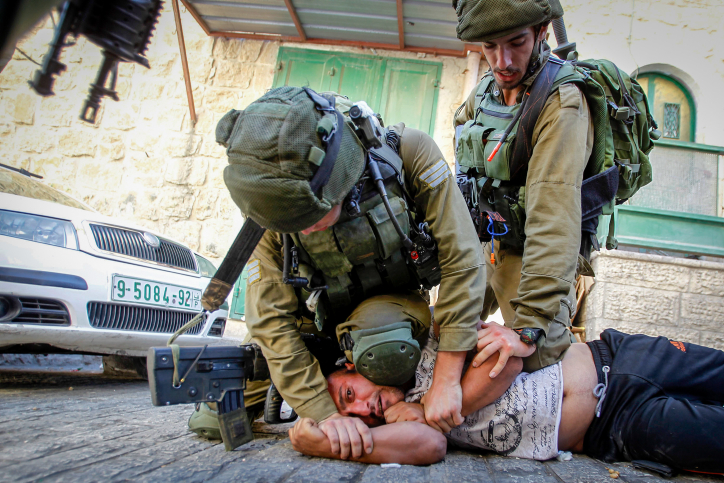
The consensus at the time certainly did not espouse the establishment of a Palestinian state, but talk of the human cost of maintaining the occupation — that is, how military dictatorship was affecting Israelis first and foremost — was not yet considered taboo. On the contrary, rolling back the occupation piecemeal could be considered a veritable form of patriotism. In that sanguine era, Breaking the Silence would have fit hand in glove.
But the Israel of Oslo no longer exists. Gone are the days when soldiers could have a safe space to discuss the traumas they endured by beating civilians and raiding homes. And while neither the Right nor the Zionist Left has ever been particularly fond of these groups (Prime Minister Rabin once famously maligned Israeli human rights group B’Tselem for hindering his ability to effectively fight Hamas suicide bombings), they did provide something of a countervailing force to Israeli policies.
We just want quiet
Today the status quo allows Israel to maintain its occupation with relatively little trouble; the costs of war or sporadic violence are worth the price for maintaining control over nearly every aspect of Palestinian life if it means Israelis get to live b’sheket, in peace and quiet.
Quiet for Israelis, however, means something quite different for Palestinians. And so, as Israeli intransigence increased, so too grew the calls from within and outside to place pressure on the Jewish state to do what it now seems incapable of doing: granting Palestinians their basic, fundamental rights. Breaking the Silence, realizing it could no longer mobilize a public that had grown accustomed to quiet, decided to take its battle to the international community. The government, abetted by a sycophantic media hungry for high ratings, would no longer tolerate this kind of behavior, placing Breaking the Silence — along with groups such as B’Tselem — in its crosshairs.
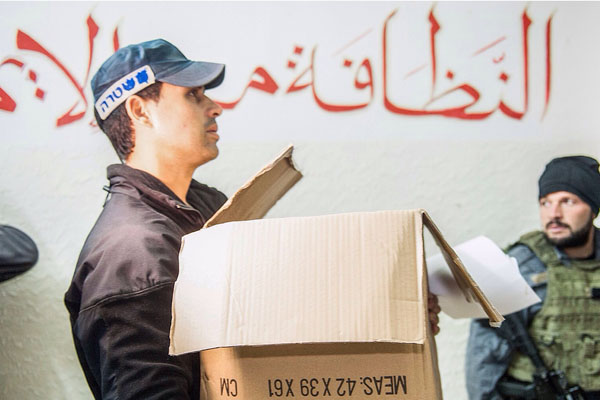
The persecution of political movements by the Israeli state has, for the most part, affected its Palestinian population. In the 1960s, Israel outlawed Al-Ard, a Palestinian nationalist organization that opposed Zionism and sought to establish a secular democratic state. In 2016, it banned the Islamic Movement over incitement, raiding its offices and shutting down a number charity organizations associated with the movement.
In 1994, Israel banned the extreme right Kach party for its support for a number of terrorist attacks committed by Jews against Palestinians, including the Tomb of the Patriarchs massacre. Today, it is becoming increasingly clear that the government is planning for the day it can ban Arab political parties from participating in the Knesset. Human rights NGOs had thus far been spared that fate.
Bringing the occupation home
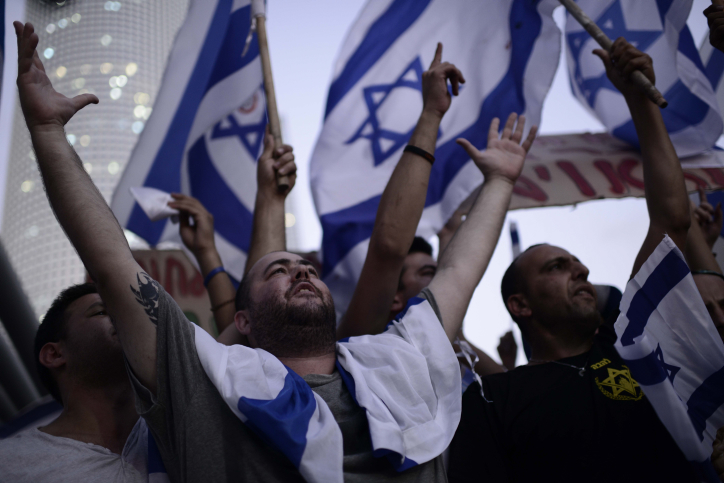
The Israeli government no longer fears a mass, violent uprising reminiscent of the Second Intifada. Armed with the most advanced military technology in the world and a docile Palestinian leadership in the West Bank, Israel has managed to turn military dictatorship into a feature, rather than an aberration, of its policies. Public acquiescence means the occupation can march on, that the government’s war on human rights will certainly face little resistance.
“Israeli society is obeying the dictates of a government that doesn’t want people to know, that wants people to look the other way,” Jewish American author Michael Chabon told me as we drove through the hills of the West Bank earlier this year. “The disinclination to see the occupation only serves the policies and agenda of the Israeli government. It makes sense then that Breaking the Silence would engender the harassment it encounters.” The psychological distance between the glitzy boulevards of Tel Aviv and the refugee camps of the West Bank, then, is not a bug — it’s built in to the design. Attempts to upend that distance, to bring the occupation home, will not be tolerated.
The chilling effect does not mean Israeli human rights organizations have closed up shop. On the contrary: B’Tselem announced last year that it would stop working with the Israeli army after 25 years, while Breaking the Silence has repeatedly proven that it is willing to face the onslaught head on. The very existence of these groups is often used to portray Israel as a pluralistic liberal democracy. The question is whether Israelis are prepared for the day that veneer fully unravels before their eyes.

